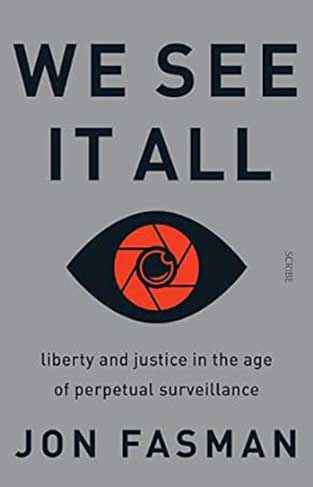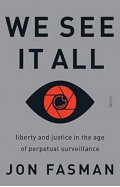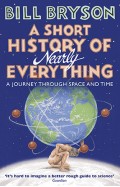We See It All - Liberty and Justice in the Age of Perpetual Surveillance
By: Jon Fasman
-
Rs 3,295.00
Due to constant currency fluctuation, prices are subject to change with or without notice.
The police now have unparalleled power at their fingertips: surveillance technology. Seamless, persistent, even permanent surveillance is available — sometimes already deployed, sometimes waiting for the right excuse. Automatic licence-plate readers allow police to amass a granular record of where people go, when, and for how long. Drones give police eyes — and possibly weapons — in the skies. Facial recognition poses perhaps the most dire and lasting threat than any other technology. Algorithms purport to predict where and when crime will occur, and how big a risk a suspect has of re-offending. Tools can crack a device's encryption keys, rending all privacy protections useless.
Embedding himself with both police and community activists in locales around the United States — ranging from Newark and Baltimore to Los Angeles and Oakland — Jon Fasman looks at how these technologies help police do their jobs, and what their use means for our privacy rights and civil liberties. Fasman provides a framework for thinking through through these issues, exploring vital questions. Should we expect to be tracked and filmed whenever we leave our homes? Should the state have access to all of the data we generate? Should private companies? What might happen if all of these technologies are combined and put in the hands of a government with scant regard for its citizens’ civil liberties?
Through on-the ground reporting and vivid story-telling, Fasman explores the moral, legal, and political questions these surveillance tools and techniques pose.
The police now have unparalleled power at their fingertips: surveillance technology. Seamless, persistent, even permanent surveillance is available — sometimes already deployed, sometimes waiting for the right excuse. Automatic licence-plate readers allow police to amass a granular record of where people go, when, and for how long. Drones give police eyes — and possibly weapons — in the skies. Facial recognition poses perhaps the most dire and lasting threat than any other technology. Algorithms purport to predict where and when crime will occur, and how big a risk a suspect has of re-offending. Tools can crack a device's encryption keys, rending all privacy protections useless.
Embedding himself with both police and community activists in locales around the United States — ranging from Newark and Baltimore to Los Angeles and Oakland — Jon Fasman looks at how these technologies help police do their jobs, and what their use means for our privacy rights and civil liberties. Fasman provides a framework for thinking through through these issues, exploring vital questions. Should we expect to be tracked and filmed whenever we leave our homes? Should the state have access to all of the data we generate? Should private companies? What might happen if all of these technologies are combined and put in the hands of a government with scant regard for its citizens’ civil liberties?
Through on-the ground reporting and vivid story-telling, Fasman explores the moral, legal, and political questions these surveillance tools and techniques pose.
We See It All - Liberty and Justice in the Age of Perpetual Surveillance
By: Jon Fasman
Rs 3,295.00 Ex Tax :Rs 3,295.00
Zubin Mehta: A Musical Journey (An Authorized Biography)
By: VOID - Bakhtiar K. Dadabhoy
Rs 840.00 Rs 1,050.00 Ex Tax :Rs 840.00
Is Pluto a Planet?: A Historical Journey through the Solar System
By: David A. Weintraub
Rs 7,195.00 Ex Tax :Rs 7,195.00
Beyond UFOs: The Search for Extraterrestrial Life and Its Astonishing Implications for Our Future
By: Jeffrey Bennett
Rs 6,395.00 Ex Tax :Rs 6,395.00
The Islamist Why I Became an Islamic Fundamentalist What I Saw Inside and Why I Left
By: Ed Husain
Rs 480.00 Rs 600.00 Ex Tax :Rs 480.00
The Demon Haunted World Science As A Candle In The Dark
By: Carl Sagan
Rs 3,995.00 Ex Tax :Rs 3,995.00
No similar books from this author available at the moment.
No recently viewed books available at the moment.
Zubin Mehta: A Musical Journey (An Authorized Biography)
By: VOID - Bakhtiar K. Dadabhoy
Rs 840.00 Rs 1,050.00 Ex Tax :Rs 840.00
We See It All - Liberty and Justice in the Age of Perpetual Surveillance
By: Jon Fasman
Rs 3,295.00 Ex Tax :Rs 3,295.00














-120x187.jpg?q6)













